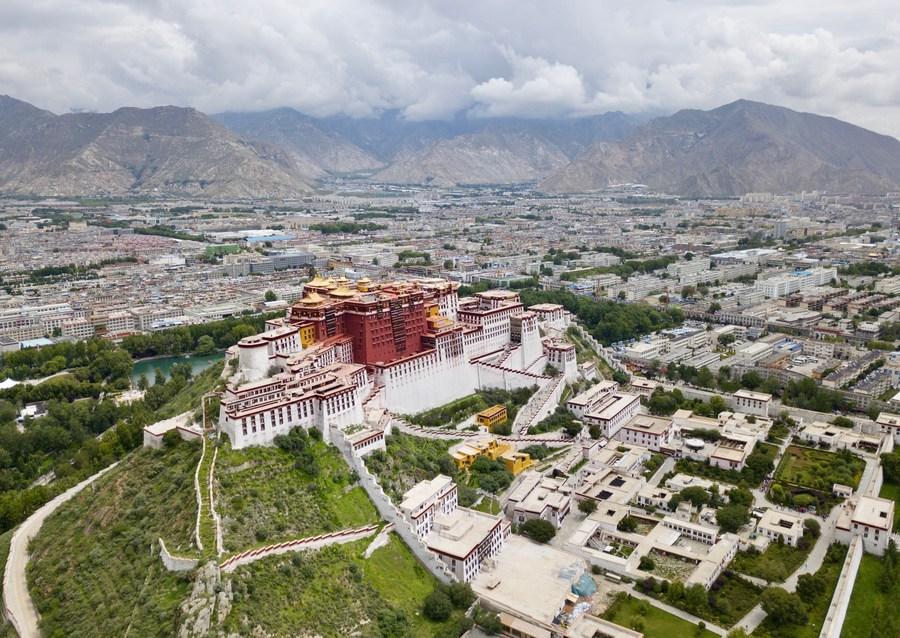Government approval required for reincarnation of grand Living Buddhas, expert says

Aerial photo shows the Potala Palace in Lhasa, capital city of Southwest China's Tibet autonomous region. [Photo/Xinhua]
The reincarnation of grand Living Buddhas of Tibetan Buddhism, including the 14th Dalai Lama, must follow the rules developed from historical conventions and be subject to the approval of the Chinese central government, an expert on Tibetology research said.
Since the founding of the reincarnation system in the 13th century, leaders of different religious sects of Tibetan Buddhism and grand Living Buddhas have needed to seek approval from central governments of different dynasties, Zhang Yun, a researcher at the China Tibetology Research Center, said during a news conference on Tibet-related issues on Thursday.
In addition, according to historical convention, Living Buddhas must be found in China, Zhang said.
In 2007, the National Religious Affairs Administration passed the rules on the reincarnation of Living Buddhas. It states that foreign organizations or individuals are not allowed to interfere with the rules.
"Since the 14th Dalai Lama has found the current reincarnation system doesn't favor him, he has raised many theories to challenge the system by claiming that he will be reincarnated into a woman, a bee or even choose not to be reincarnated at all. In fact, he has gained his status because of the system, which will never be overturned by individuals," Zhang said.
He added that the reincarnation of Living Buddhas is a serious issue for Tibetan Buddhists. It can be only be carried on healthily when the rules are strictly followed, so China will never abolish the reincarnation system, which is in line with historical convention, traditions and the will of the followers, he said.
Zhang also made it clear during the event, which was organized by the All-China Journalist Association and the China Tibetology Research Center for domestic and overseas journalists, that all historical documents in various languages have indicated that Tibet has always been a part of China.
"In recent years, some Western countries have deliberately chosen to ignore the facts and claimed that Tibet was once an independent state without providing any evidence. Such claims, which aim to interfere with China's domestic affairs, are disrespectful to its history and are groundless," he said.
